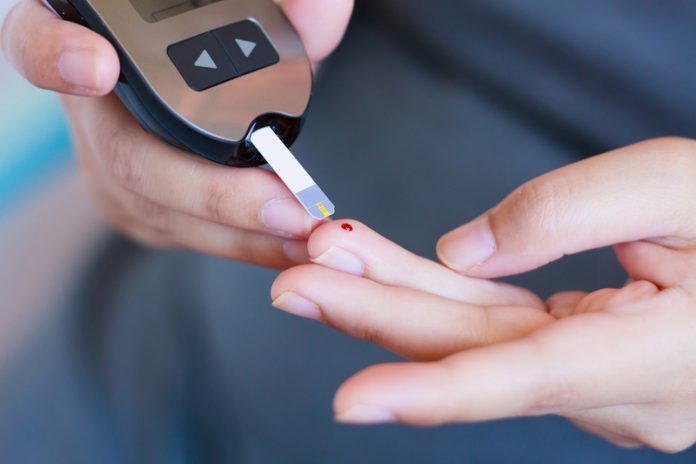Dr Elizabeth Robertson, Director of Research at Diabetes UK weighs up the costs of Type 2 diabetes remission
Type 2 diabetes is the epidemic of our time. There are now 3.8 million people in the UK living with a diagnosis of diabetes; with 90% of these living with Type 2, and a further one million thought to not yet be diagnosed, it’s fair to say we have a crisis on our hands. Diabetes costs the NHS around £10 billion every year, with a large proportion of that funding dedicated to treating devastating complications associated with the condition, such as cardiovascular disease, sight loss and amputations.
That said, the management of Type 2 diabetes has greatly improved in recent years. Particularly since the landmark UK Prospective Diabetes Study highlighted the need to control blood pressure and glucose levels to reduce the risk of diabetes complications(1). While medications are available to help manage Type 2 diabetes, only 65% of people in the UK are able to meet their blood glucose targets(2).
Remission from Type 2 diabetes offers an alternative approach, with people previously diagnosed with Type 2 diabetes achieving blood glucose levels within the range needed to lower the risk of complications, without the need for diabetes medications. Bariatric surgery has been shown to result in remission in 30-60% of cases, with reports of remission lasting for up to 15 years(3,4). However, an intervention to achieve remission without the need for surgery is desperately needed.
To explore the potential to put Type 2 diabetes into remission through lifestyle changes, Diabetes UK funded DiRECT, the Diabetes in Remission Clinical Trial. Led by Professors Mike Lean and Roy Taylor at the University of Glasgow and Newcastle University, the trial involves 298 people with Type 2 diabetes, testing a low-calorie weight management programme delivered through GP practices.
The programme is composed of three parts: 12-20 weeks of meal replacements to support significant weight loss, support from a nurse or dietitian to introduce healthy foods into the diet, and long-term support to maintain weight loss. The one-year DiRECT results showed that 46% of those who took part were in remission, with two-year data soon to shed further light on this approach to remission(5).
The results led to a global shift in the conversation around Type 2 diabetes; perhaps remission is possible through weight management for significant numbers of people living with Type 2 diabetes. The prospect of reducing medications and the risk of expensive complications – both for the individual and health services – for millions of people across the world is an inviting one.
But questions, of course, remain as to the feasibility of such an approach, and, in particular, the costs involved.
We do not have all of the answers yet, but the 2018 health economic analysis of the first year of DiRECT, published in the Lancet Diabetes & Endocrinology, is an important first step(6).
The analysis suggests that the rollout of a Type 2 diabetes remission programme within the NHS could cost £1,067 per participant in its first year. The Glasgow team responsible for the analysis took into account the costs of healthcare professional training, the formula diet, clinical reviews, supporting literature, and routine healthcare – including primary and community care, hospitalisations and medications for Type 2 diabetes or blood pressure.
Factoring in the 46% remission rate seen 12 months into DiRECT, the team estimated that each case of remission would cost £2,564. The most recent comprehensive analysis in 2010 cited the cost of managing Type 2 diabetes at, coincidentally, £2,564 – rising to £2,801 with current inflation.
While this latter figure additionally includes the costs of treating serious complications and covers all stages of Type 2 diabetes throughout an individual’s lifetime, it raises an important question as to the relative cost of making remission a reality.
As a relatively inexpensive treatment option, when compared to managing Type 2 diabetes, and one which may reduce the risk of diabetes complications, long-term remission could result in significant cost savings to the NHS. It is of course too early to know for certain; more research into the long-term impact of remission on the rates of complications is very much needed, as are further assessments of the health economics involved. But this data will emerge, both from the continuation of the DiRECT study and the recently announced pilot remission programmes committed to by NHS England and Scotland(7,8).
While understanding the economic implications is vital, we must not forget the impact of remission on a far more personal level, enabling individuals – and their families – to live healthier lives, This will not be a catchall solution for everyone with Type 2 diabetes, particularly due to the complexity of both the condition and society more widely. As such, we have a responsibility to make remission an option for those who can benefit now, while we continue to strive for better outcomes, through further research and healthcare innovation, for all those affected or at risk.
References
1 UKPDS Group (1998) Lancet 352:837–53.
2 National Diabetes Audit 2017-18, Care Processes and Treatment Targets Short Report.
3 Delegates of the 2nd Diabetes Surgery Summit (2016) Diabetes Care 39(6):861–877.
4 Cummings DE et al. (2016) Diabetologia 59(5):945–953.
5 Lean et al. (2017) Lancet 391(10120):541–51.
6 Xin Y et al. (2018) Lancet Diabetes Endocrinol Epub doi:10.1016/S2213-8587(18)30346-2.
7 NHS England (2019) The NHS Long Term Plan.
8 NHS Scotland (2018) A Healthier Future: type 2 diabetes prevention, early detection and intervention framework.
Dr Elizabeth Robertson
Director of Research
Diabetes UK
Tel: +44 (0)20 7424 1001











